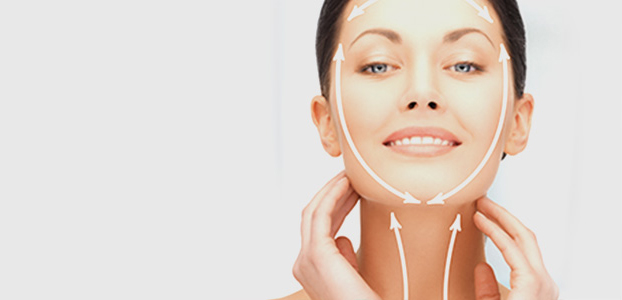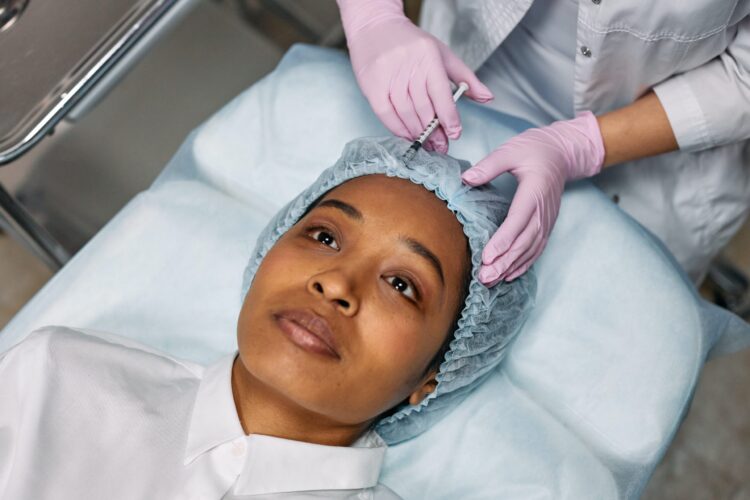Hair loss and hair thinning are common concerns for both men and women, affecting more than 80 million Americans. While not a medical problem, hair loss can cause emotional distress, lowered self-esteem, and even social withdrawal. Previously, hair loss treatments have been limited to topical medications and surgical procedures. Fortunately, advancements in medical technology now allow for the ability to treat hair loss and thinning without surgery or needles.
Here, we explain what causes hair loss, how it is typically treated, and two cutting-edge non-surgical hair restoration treatment options.
What Causes Hair Loss?
One of the most common causes of hair loss and thinning is genetics, as is the case with conditions like male-pattern and female-pattern baldness. However, hair loss can also be caused by factors such as hormone imbalances, certain medical conditions and medications, chronic stress, and the natural aging process.
Hair loss can show up in several different patterns, including:
- Gradual thinning. The most common type of hair loss, gradual thinning tends to occur with age and usually begins at the top of the head. For men, gradual hair loss often begins as a receding hairline, while women typically notice hair loss beginning at the part in their hair.
- Patches of bald spots. In some cases, hair loss begins as patches of bald spots that gradually get larger over time. For men, this type of hair loss pattern can also be seen in facial hair.
- Sudden hair loss. Hair loss that occurs suddenly and drastically is often caused by a stressful or traumatic event. This type of hair loss is typically temporary and will resolve on its own once the source of stress is removed.
Can Hair Loss Be Prevented?
Because hair loss is often linked with genetics, it cannot always be prevented. However, certain non-surgical hair restoration treatment options can help to prevent or slow hair loss and thinning in the future by stimulating cell renewal at the base of the hair follicle. Additionally, some underlying causes of hair loss, such as nutritional deficiencies or tobacco use, can be addressed through diet and lifestyle changes.
How Is Hair Loss Treated?
Hair loss has historically been treated using special shampoos or other topical hair care products, nutritional supplements, prescription medications, and hair transplant surgery. However, the effectiveness of shampoos and supplements at treating or preventing hair loss is unclear, and many people do not wish to move forward with a surgical procedure in order to reverse hair loss.
Non-Surgical Hair Restoration Options
There are now other non-surgical hair restoration options that are both effective and non-invasive, allowing you to see real results without undergoing surgery or extensive recovery.
GetHairMD™ Clinical Hair Growth Laser
The GetHairMD Clinical Hair Growth Laser is an FDA-cleared device that uses low-level laser energy, also known as red light therapy, to promote hair growth. This laser hair restoration treatment works by emitting photons into the scalp, which are then absorbed by weak cells in the hair follicle. There, the low-level laser energy stimulates the natural cell repair process, increases circulation and oxygen uptake, and decreases harmful inflammation, resulting in hair follicle repair and healthy hair regrowth.
Depending on the severity of your hair loss or thinning, you may need multiple hair growth laser treatment sessions. While it may take up to six months to see full results, many people begin to notice a decrease in the amount of hair loss in just a few weeks after their GetHairMD laser treatment. This non-surgical hair restoration treatment has a success rate of over 90% since its FDA clearance in 2013.
TransDermal Infusion®
One of the biggest challenges with topical hair restoration products such as shampoos is that often, the molecules of the active ingredients are too large to effectively penetrate the skin. Thus, these treatments are often ineffective because the active ingredients are unable to reach the source of the problem at the hair follicle.
TransDermal Infusion eliminates this problem by infusing high molecular weight ingredients into the scalp so that they are able to effectively reach the underlying hair follicle. This non-surgical, non-invasive hair restoration treatment safely and gently sends pulses of electrical current through the skin’s natural water-based “channels,” where it can deliver hair growth serums that would otherwise not effectively penetrate the skin.
Topical solutions such as the U.SK Under Skin Hair Saver can be combined with this TransDermal Infusion delivery system can treat underlying hair growth problems at the follicular level. U.SK Under Skin Hair Saver contains key ingredients such as peptides, growth factors, and amino acids to stimulate hair follicle growth and repair and provide important nutrients to help prevent hair loss in the future.
Who Is Non-Surgical Hair Restoration Best For?
Non-surgical hair restoration options like low-level lasers and TransDermal Infusion can be an effective solution for men and women of any age who have mild to moderate hair loss or hair thinning. Treatment that starts in the early stages of hair loss is able to target functioning hair follicles and therefore help to stop or significantly slow future hair loss.
Because these treatment options do not require surgery or downtime, they can be appropriate options for virtually anyone experiencing mild to moderate hair loss and can easily fit into busy schedules.
Additionally, both Clinical Hair Growth Laser treatments and TransDermal Infusion can be customized to meet your unique hair restoration needs. Our team of medically-trained professionals will develop an individualized hair growth treatment plan to maximize your results.
Bottom Line
There are now several FDA-cleared, non-invasive options to restore hair growth and slow or prevent future hair loss and thinning, including low-level lasers and TransDermal Infusion. These hair restoration options are proven treatments to trigger hair regrowth and prevent future hair loss and thinning.
If you are ready to take the first step toward getting a fuller, healthier head of hair, call our Boca Raton & Fort Lauderdale office today at 561-246-6328 or contact us online to book an appointment with one of our skincare specialists.





































































